Testing Services
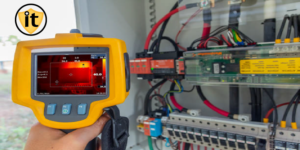
What is Thermography Scanning/Testing?
Thermography testing is a non-destructive method that uses infrared detection to identify temperature changes in operations, heat flows through equipment, and temperature comparisons for various components and areas.
Thermography or thermal imaging detects heating concentrations or heat leak sources in electrical equipment. Thus, thermography detects infrared energy emitted by an electrical circuit or an electrical part through which an electrical current passes (wire, cable, transformer, contactor, electrical motor, breaker, etc.)
Why is Thermography Testing is Important?
It can aid in predictive maintenance by using data about temperature fluctuations to identify potential maintenance issues that might lead to equipment failure and shutdown.
Benefits of thermography include:
Discovering defects in pipes, metals and plastic parts with temperature variances
Finding hidden defects and material wear at an early stage
Detecting corrosion damage and flaw detection
Measuring and observing areas that are inaccessible or hazardous for other non-destructive testing methods
Ability to inspect large areas
Does not affect the production process
Detecting problems in real time
Standards:
(A) Bangladesh National Building Code 2006 –Part-8, Chapter-2.
(B) Bangladesh Electricity Rules 1937 – Appropriate Sections.
(C) NETA MTS-2011 – Appropriate Sections
(D) ASTM E1934‐99a Standard Guide for Examining Electrical and Mechanical Equipment With Infrared Thermography
(E) RSC Fire Safety Standard – Appropriate Sections

What is cable insulation resistance (IR) test ?
A cable insulation resistance (IR) test measures how well a cable’s insulation prevents the flow of electric current. An IR tester, also known as a Megger, is a portable ohmmeter that can be used to perform this test.
The Cable Insulation Resistance Test (IR) test (also commonly known as a Megger) is a spot insulation test which uses an applied DC voltage (typically either 250Vdc, 500Vdc or 1,000Vdc for low voltage equipment <600V and 2,500Vdc and 5,000Vdc for high voltage equipment) to measure insulation resistance in either kΩ, MΩ or GΩ.
The Cable Insulation Resistance Test (IR) Measurement Process:
The measured resistance is intended to indicate the condition of the insulation or dielectric between two conductive parts, where the higher the resistance, the better the condition of the insulation. Ideally, the insulation resistance would be infinite, but as no insulators are perfect, leakage currents through the dielectric will ensure that a finite (though high) resistance value is measured.
Firstly ensure that the equipment to be tested and the work area is safe, equipment is de-energized and disconnected, all the relevant work permits have been approved and all locks/tags in place. Next, discharge capacitances on the equipment (especially for HV equipment) with static discharge sticks or an IR tester with automatic discharging capabilities. The leads on the IR tester can then be connected to the conductive parts of the equipment.

Standards:
(A) Bangladesh National Building Code 2006 – Appropriate Sections
(B) Bangladesh Electricity Rules 1937 – Appropriate Sections.
(E) Alliance Fire Safety Standard – Appropriate Sections
(D) NFPA 70 – Appropriate Sections

What is Earth Resistance Test?
An earth resistance test measures the resistance between an earth electrode and a grounding electrode. Earth resistance can be measured using a variety of methods, including: fall-of-potential.
Why do we need to test ground resistance?
Earth resistance testing is important for the safe operation of electrical systems. It helps identify and mitigate potential electrical hazards, such as fires and electric shock. It also ensures that the earth electrode system can effectively dissipate fault currents. Effective grounding will avoid the risk of electric shock to a person in contact with an item, if a fault occurs.
Measurement Process:
This instrument makes earth resistance measurements with fall-of-potential method, which is a method to obtain earth resistance value “Rx” by applying AC constant current “I” between the measurement object “E” (earth electrode) and “H(C)” (current electrode), and finding out the potential difference “V” between “E” (earth electrode) and “S(P)” (potential electrode).


Standards:
(A) Bangladesh National Building Code 2006 – Appropriate Sections
(B) Bangladesh Electricity Rules 1937 – Appropriate Sections.
(C) Alliance Fire Safety Standard – Appropriate Sections
(D) NFPA 70 – Appropriate Sections
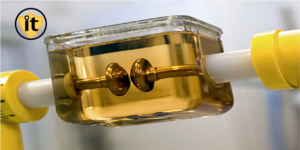
What is Transformer Oil Dielectric Breakdown Voltage Test?
A transformer oil dielectric breakdown voltage (BDV) test measures the voltage at which sparking occurs between two electrodes immersed in the oil. The BDV is also known as the dielectric strength of transformer oil.
The standard procedure to measure the breakdown voltage of dielectric oil is by observing at what voltage there will be sparking between the two electrodes that are immersed in the insulating oil, separated by a specific gap which is usually 2.5mm as per set standards.
Why Transformer Oil Dielectric Breakdown Voltage Test is Important?
The dielectric breakdown voltage (BDV) test is important because it indicates the health of transformer oil and whether it can be used in the future. The BDV test is a common test that determines the resistance of transformer oil to electrical stress. It also helps identify if the oil needs to be filtered or regenerated, and can help prevent failures and maximize safety.
Process:
When a voltage is applied to the insulating oil, as the voltage increases, the current through the oil increases sharply, causing it to completely lose its inherent insulating properties and become a conductor. This phenomenon is called breakdown of the insulating oil. The critical voltage value at which the insulating oil breaks down is called the breakdown voltage or dielectric breakdown. The electric field strength at this time, called the dielectric strength of the oil, indicates the ability of the insulating oil to resist the electric field. The relationship between the breakdown voltage U (kV) and the dielectric strength E (kV/cm) is: E=U/d“
d”=The distance between the electrodes (cm).

Pure insulating oils have different breakdown mechanisms than insulating oils, which usually contain impurities.
For measuring BDV of transformer oil, portable BDV measuring kit is used such as PE-AOBDV-MXXX or PE-LOBDV-MXXX. In these kits, oil is kept in a pot/chamber in which one pair of electrodes are fixed with a gap of 2.5 mm (in some kit it 4mm) between them. Then slowly rising voltage is applied between the electrodes. The rate of rising voltage is controlled and observed at which sparking starts between the electrodes. That means at which voltage dielectric strength of transformer oil between the electrodes has been broken down.
This measurement is taken 3 to 6 times in the same sample of oil, and we take the average value of these readings. BDV is an important and popular test of transformer oil, as it is the primary indicator of the health of oil and it can be easily carried out at the site.
Benefits:
The BDV test is useful because it’s quick, and it can indicate how the insulating liquid is before more extensive tests are performed. The test also helps determine:
- The oil’s electrical properties
- Whether the oil is suitable for future use
- If filtration or regeneration is required
- How to reduce oil costs
- How to increase component life
- How to prevent equipment fires
- How to maintain transformer reliability
Standards:
ASTM D877

Transformer oil resistivity should be measured at 27°C and 90°C. The minimum standard specific resistance of transformer oil at 90°C is 35 × 1012 ohm-cm, and at 27°C, it is 1500 × 1012 ohm-cm.

We are fully insured and bonded and are more then happy to send certificates of insurance at your request. It is important to work with companies that are insured and bonded to make sure you protect your families’ most valued assets.

We are fully insured and bonded and are more then happy to send certificates of insurance at your request. It is important to work with companies that are insured and bonded to make sure you protect your families’ most valued assets.
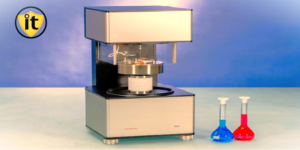
We are fully insured and bonded and are more then happy to send certificates of insurance at your request. It is important to work with companies that are insured and bonded to make sure you protect your families’ most valued assets.
We are fully insured and bonded and are more then happy to send certificates of insurance at your request. It is important to work with companies that are insured and bonded to make sure you protect your families’ most valued assets.
We are fully insured and bonded and are more then happy to send certificates of insurance at your request. It is important to work with companies that are insured and bonded to make sure you protect your families’ most valued assets.
We are fully insured and bonded and are more then happy to send certificates of insurance at your request. It is important to work with companies that are insured and bonded to make sure you protect your families’ most valued assets.
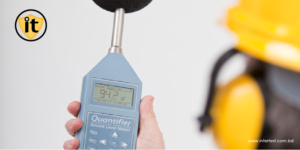
We are fully insured and bonded and are more then happy to send certificates of insurance at your request. It is important to work with companies that are insured and bonded to make sure you protect your families’ most valued assets.

We are fully insured and bonded and are more then happy to send certificates of insurance at your request. It is important to work with companies that are insured and bonded to make sure you protect your families’ most valued assets.

We are fully insured and bonded and are more then happy to send certificates of insurance at your request. It is important to work with companies that are insured and bonded to make sure you protect your families’ most valued assets.

We are fully insured and bonded and are more then happy to send certificates of insurance at your request. It is important to work with companies that are insured and bonded to make sure you protect your families’ most valued assets.
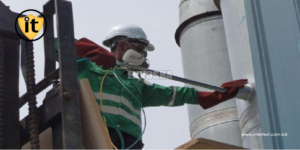
We are fully insured and bonded and are more then happy to send certificates of insurance at your request. It is important to work with companies that are insured and bonded to make sure you protect your families’ most valued assets.
We are fully insured and bonded and are more then happy to send certificates of insurance at your request. It is important to work with companies that are insured and bonded to make sure you protect your families’ most valued assets.
We are fully insured and bonded and are more then happy to send certificates of insurance at your request. It is important to work with companies that are insured and bonded to make sure you protect your families’ most valued assets.
We are fully insured and bonded and are more then happy to send certificates of insurance at your request. It is important to work with companies that are insured and bonded to make sure you protect your families’ most valued assets.
We are fully insured and bonded and are more then happy to send certificates of insurance at your request. It is important to work with companies that are insured and bonded to make sure you protect your families’ most valued assets.
We are fully insured and bonded and are more then happy to send certificates of insurance at your request. It is important to work with companies that are insured and bonded to make sure you protect your families’ most valued assets.
We are fully insured and bonded and are more then happy to send certificates of insurance at your request. It is important to work with companies that are insured and bonded to make sure you protect your families’ most valued assets.
We are fully insured and bonded and are more then happy to send certificates of insurance at your request. It is important to work with companies that are insured and bonded to make sure you protect your families’ most valued assets.
